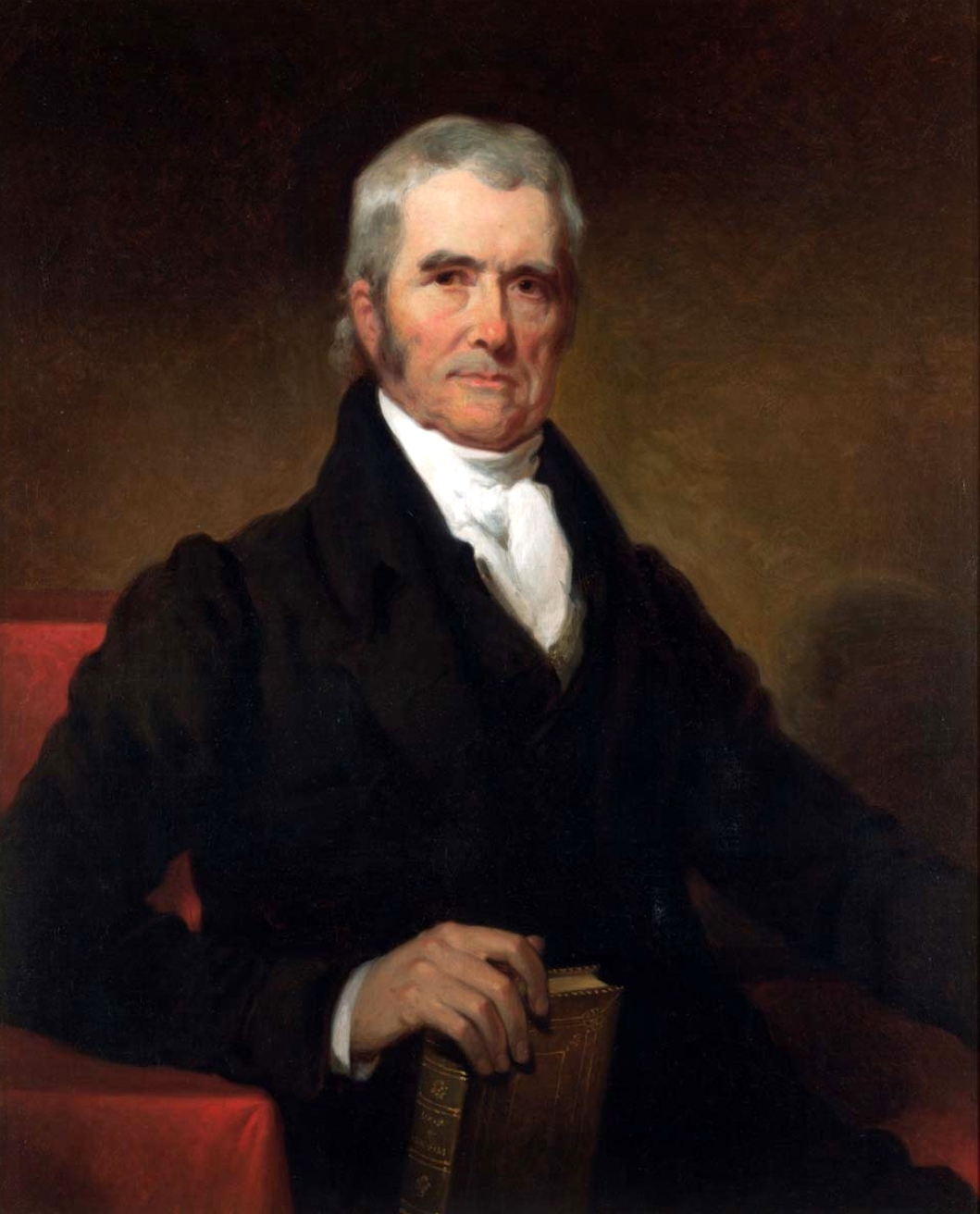
At the age of 45, the staunch federalist
John Marshall was nominated by President John Adams to become the
second chief justice of the U.S. Supreme Court. In many
respects, this nomination was revenge for Adam's bitter election
loss in 1800, as Adam's nemesis, Thomas Jefferson, would now be
bedeviled by the federalist viewpoints of his cousin, John
Marshall, throughout his presidency.
(Click here for more on Marshall)
Like his friend George Washington,
John Marshall had a thoroughgoing distrust of Jefferson's political
philosophy. Daniel Webster, the great jurist from the state of New
Hampshire, would later say of Marshall: "I have never known a man
of whose intellect I had a higher opinion." Marshall's
colleague on the high court, Justice Storey would write: "His
genius is, in my opinion, vigorous and powerful, less rapid than
discerning, and less vivid than uniform in its light...it unravels
the mysteries with irresistible acuteness. In subtle logic, he is
no unworthy disciple of David Hume..."
Marshall would write the majority
opinion in many landmark decisions that transformed the U.S.
Constitution from a document of words and lofty ideas into the
actual machinery of government. He was devoted to the
rights of property, to steady government by the educated, wealthy,
wise and good, and became the personification of the reaction
against popular government that followed the French
Revolution. Among his most profound beliefs was the
opinion that the common man, left to themselves, were incapable of
self-government.
Related People
Related Events
Related Flashpoints